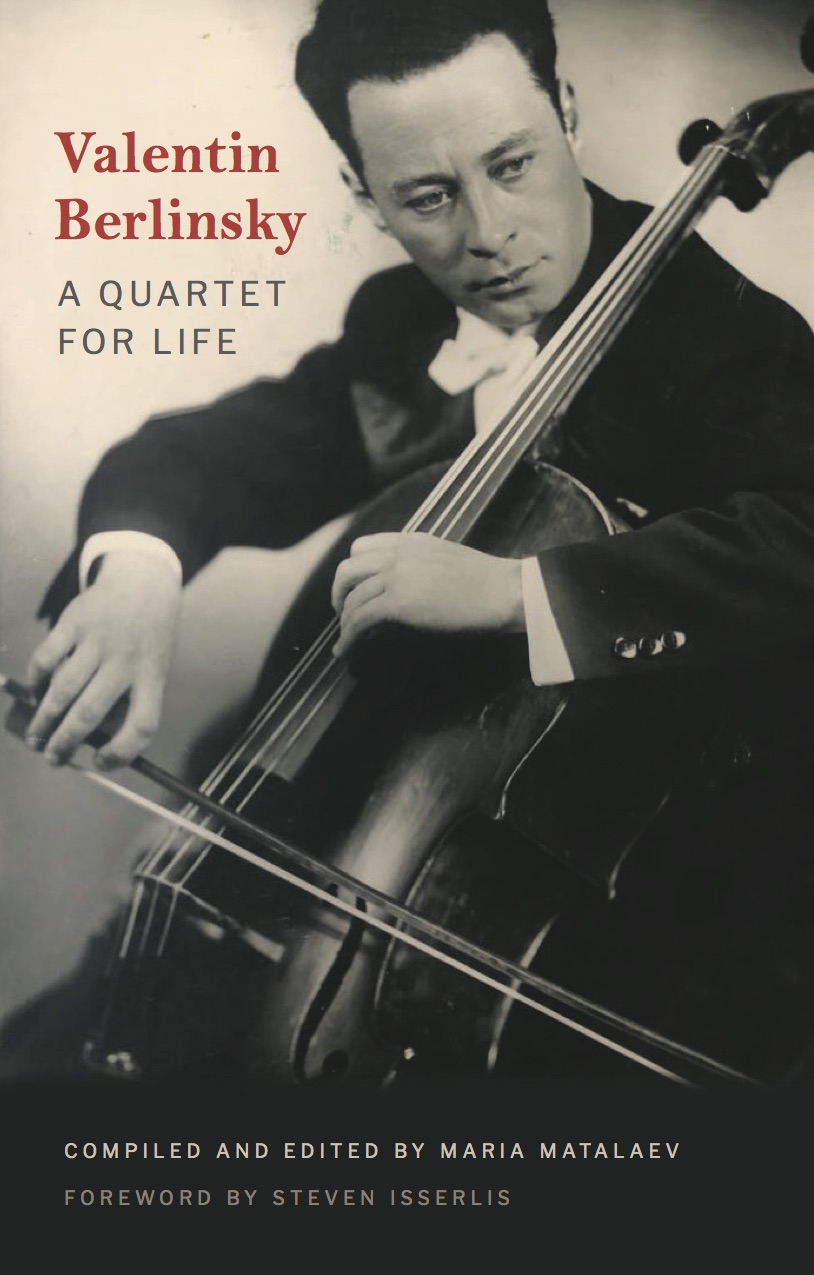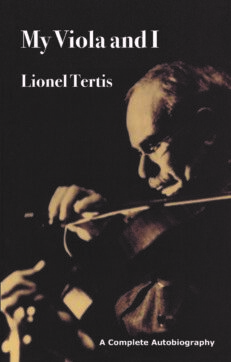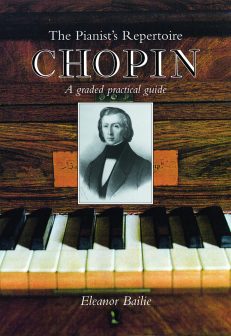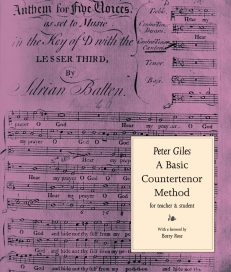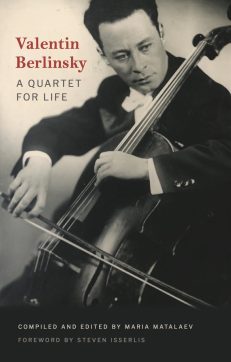Description
Valentin Berlinsky (1925-2008) was a founding member of the Borodin Quartet and its cellist and mainstay for more than six decades. A proud Russian but also a man of compromise, his was a life lived for and through the Borodin Quartet. This book tells his story in his own words, lovingly compiled and edited by his grand-daughter, Maria Matalaev, from his diaries, correspondence and interviews, and his accounts of his close friendships with the likes of Shostakovich and Richter, Rostropovich and Oistrakh. Supplemented by tributes from family and friends, as well as an impressive annexure giving every performance, broadcast and recording made by the Borodin Quartet, this book constitutes one of the most revealing chronicles of Soviet and post-Soviet Russian musical life. In 2005, at the celebrations for both his 80th birthday and the 60th anniversary of the Borodin Quartet, Valentin Berlinsky sat down at a table with his students and said: ‘My dears, please, keep going: never leave Russia!’
Contents
Foreword by Steven Isserlis
Author’s Preface
Publisher’s Note
Family and Childhood
Moscow Central Music School
Moscow Tchaikovsky Conservatory
Birth of a Quartet, Beginnings – First Appearances at Moscow Conservatory
Ethics and Ideals – Moscow Philharmonic Quartet
Stabilising the Quartet
Borodin Quartet on the Road
Dmitri Dmitriyevich Shostakovich
Like a Phoenix from the Ashes
On Leadership
On Teaching
On Audiences – on Russia
David Oistrakh
On Criticism – Mstislav Rostropovich
On Sviatoslav Richter – on family
In Praise of Examples
Anatoly Zverev
Tempo
Yevgeny Fyodorovich Svetlanov
Finale
Valentin Berlinsky by Family and Friends:
Ludmila Berlinskaya
Dmitri Shebaline
Irina Antonova
Rostislav Burkin
Natalia Shakhovskaya
Appendices
Notes on Contributors
Index of Names
About the Author
Born in Paris to a family of eminent Russian musicians, Maria Matalaev began her career as a pianist, completing her studies at the Regional Conservatory and the Ecole Normale de Musique A. Cortot in Paris. Winner of several international awards, Maria started performing with orchestras at the age of 15 and has since played as a soloist or chamber musician throughout Europe at prestigious venues such as the Wigmore Hall in London, the Gaveau and Cortot halls in Paris, and the Great and Small Halls of the Moscow Conservatory. After gaining a bachelor’s degree in Applied Modern Literature at the Sorbonne, Maria worked in the field of art history before returning to music as an audience development manager working with the Secession Orchestra and the piano duet Berlinskaya-Ancelle. She gained a master’s degree in Arts, Letters and Civilization majoring in contemporary literature, from the Sorbonne, and in 2013 began translating and editing the memoirs of her grandfather, Valentin Berlinsky, the celebrated cellist and founder of the Borodin Quartet. First published in French, the book was awarded the 2016 “Prix du Temoignage” at the Prix des Muses. With her experience as an accomplished chamber musician and with her knowledge of contemporary literature, art history and a mastery of a number of foreign languages, Maria now teaches piano and literature in Paris.
Reviews
The best classical music book releases 2019 – BBC Music Magazine
In 2023, in the context of war and mass emigration of artists protesting against Russia’s invasion of Ukraine, this book needs to be recognised as an important historical and social study. It reopens the question of whether “to stay” means “to collaborate” and whether it is possible for a musician to stay honest despite the regime. Can the artist separate themselves from the country they live in? The editor of the book, Maria Matalaev, Berlinsky’s granddaughter, compiled a balanced volume comprising Berlinsky’s own memoirs, as well as accounts of him by his family and friends.
Dr Darya Protopopova – London Group of Multilingual Writers – Read the full review
On so many levels, this is one of the most fascinating books I have ever read: a history of the legendary Borodin Quartet, not coincidentally packed with musical wisdom enlightening, or at least food for thought, to any musician. Furthermore, it’s a memoir of the extraordinary talent among both teachers and students of the Moscow Conservatory in the 1940s (Shostakovich, David Oistrakh and Rostropovich just some of the most famous); and – perhaps most intriguing of all – a candid portrait of the Borodin’s long-standing cellist, Valentin Berlinsky. Readers may recall the memoir of another one-time key member of the Borodin, Rostslav Dubinsky’s Stormy Applause, in which Berlinsky is cast in a sinister light as a Stalinist stooge. Do put all prejudice aside and try this extraordinary memoir-cum-history from the man himself. Conjured from a rich mix of sources – Berlinsky’s diary, reviews, interviews published for the first time – what emerges from the book is a profound musician fanatically dedicated to the quartet and the repertoire it excelled in. Anyone disappointed by their Christmas haul should not hesitate but treat themselves.’ 5 stars
Daniel Jaffé – BBC Music Magazine
The more I read, the more absorbed and touched I was.
Steven Isserlis
Here is a book created with such passion that even those who question the place of music in today’s world will have their faith restored. The Borodin Quartet was to the string quartet what Richter was to the piano, Oistrakh to the violin, Rostropovich to the cello. But the story of this Soviet ensemble – the first to come out of the USSR to give concerts abroad – was inextricably linked to the personality of its founder, the cellist Valentin Berlinsky.
Franck Mallet – Classica
Despite the diversity of the contents, the book reads like a novel, plunging the reader into the daily constraints in which Soviet musicians were obliged to function. Berlinsky does not evade the multiple difficulties that constantly confront the Quartet but shows no bitterness towards his country which he always refused to leave.
Sebastien Foucart – Concertonet.com
Above all, what shines through is the incredible destiny of a magnificent chamber group which, despite the incessant discriminations due to the Jewish origin of some of its members, would become, world-wide and for decades, the most prestigious symbol of the Russian school of quartet playing.
Enriched by numerous annexes and a discography, this book throws new light, remarkably well documented, on both an individual and a collective experience, undoubtedly unique in the history of the string quartet.
Patrick Szersnovicz – Diapason No.640
Siberian childhood, musical apprenticeship in Moscow, war, the funeral of Stalin, greatness and subjugation, exceptional figures, tours abroad, requirements, success, advice from Shostakovich in person, all are abundantly reproduced here, but also ethics, pedagogy and thoughts on the profession. Certainly the most captivating document on the art of interpretation that we have seen in the last several years.
Frederic Gaussin – Lettre du musicien No.462

